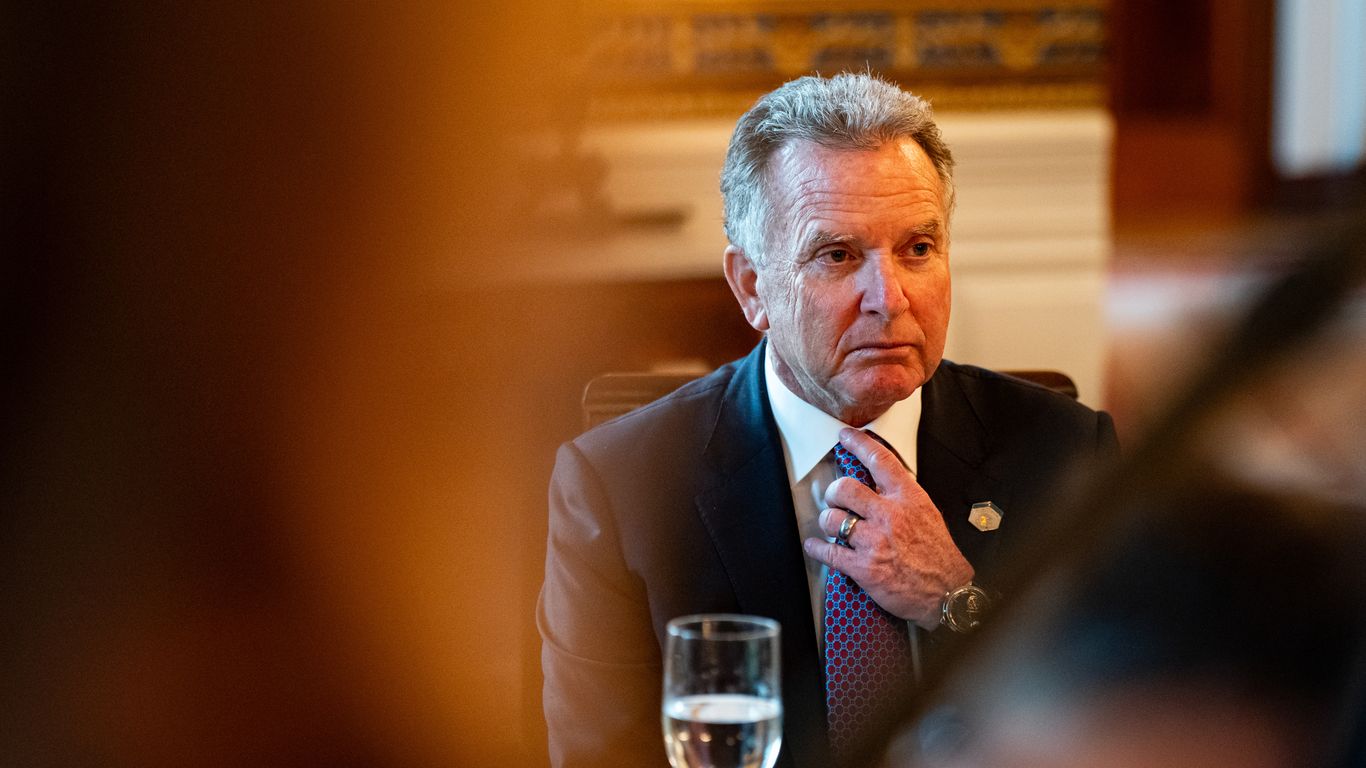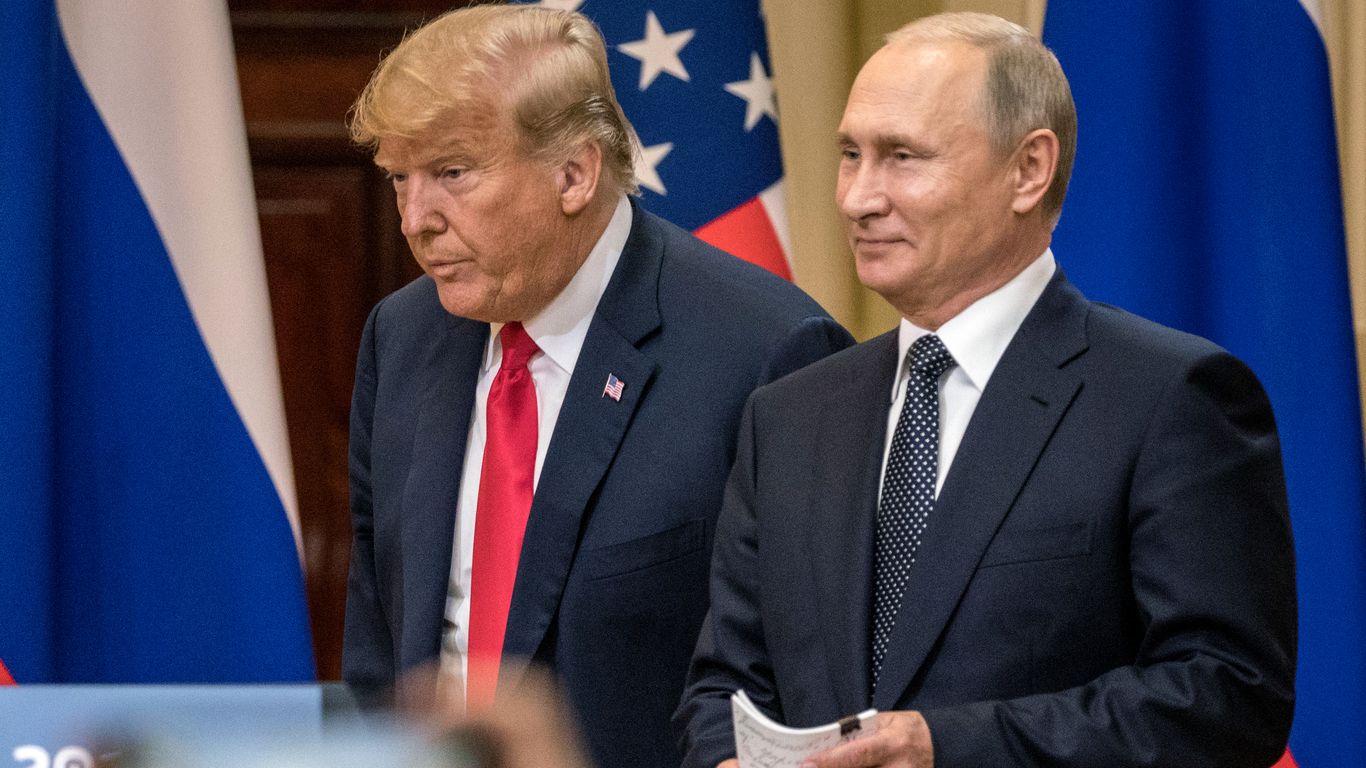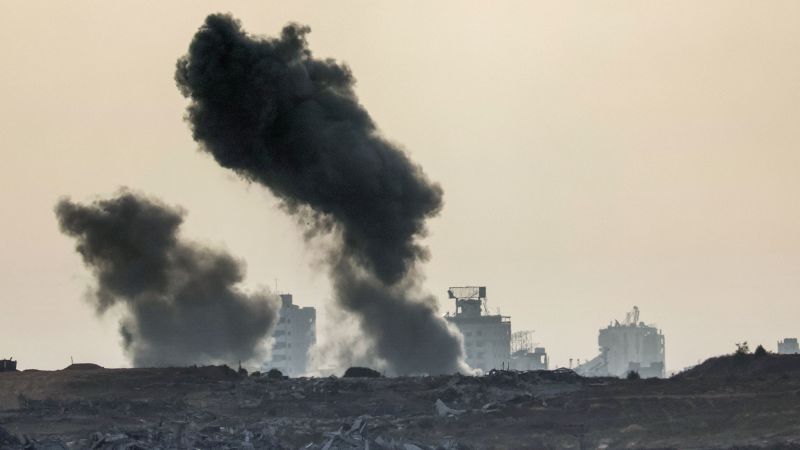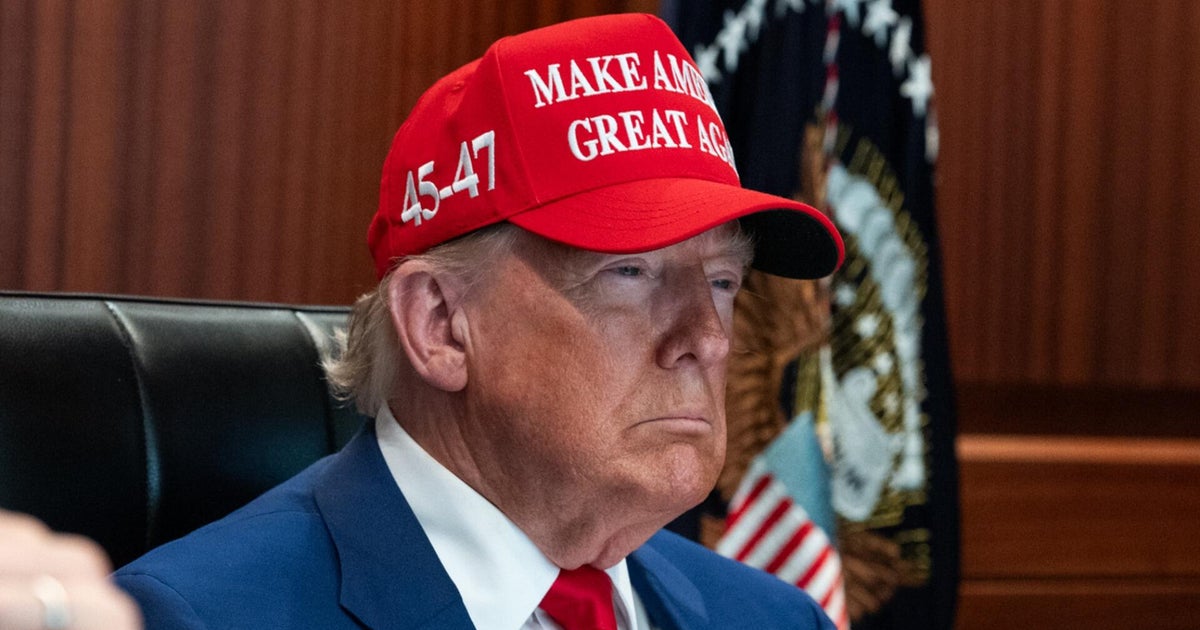Trump's Warning to Putin: Ceasefire or Consequences
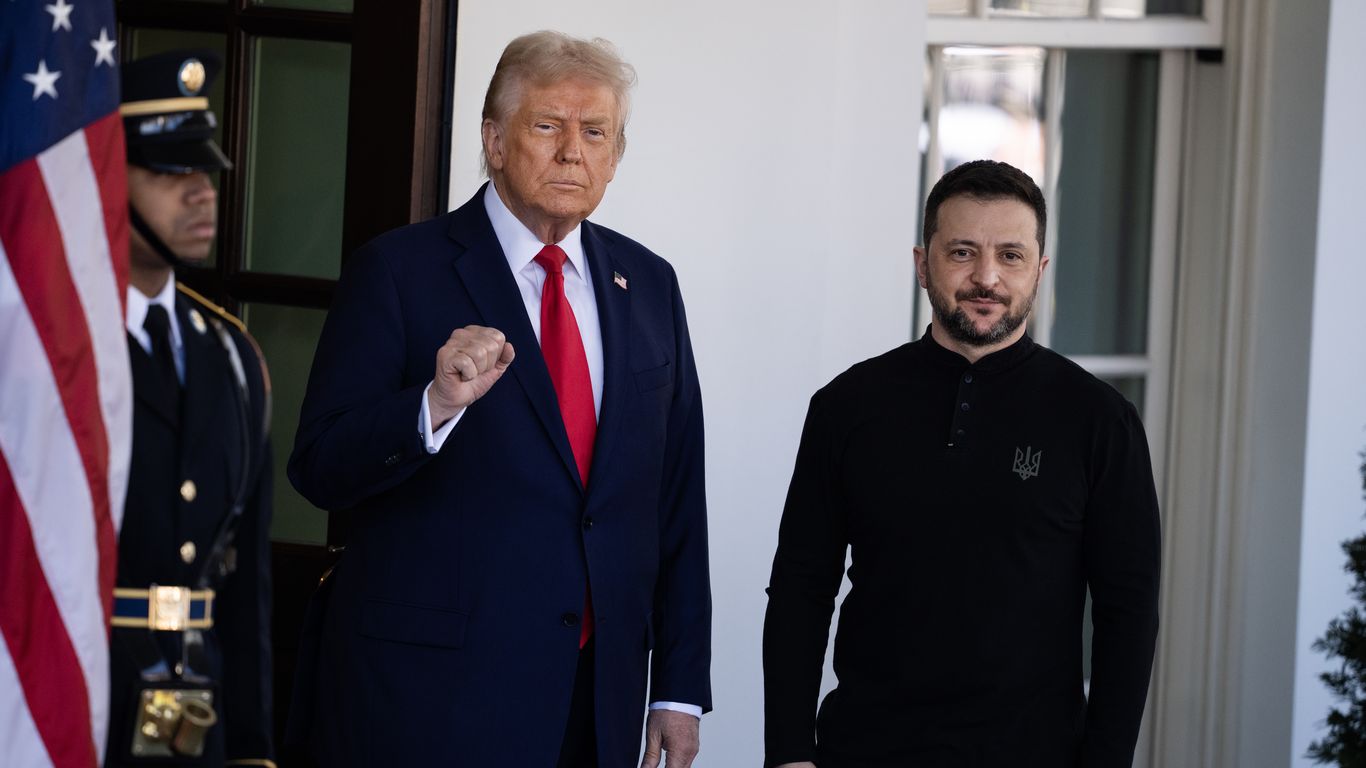
Introduction
In a recent interview with Axios, President Trump stated that there will be "very severe" consequences for Russian President Vladimir Putin if he refuses to agree to a ceasefire. This comes as tensions between the two countries have been escalating over the ongoing conflict in Syria.
Current Situation
Despite repeated attempts by the international community to broker a ceasefire in Syria, Putin has consistently rejected the idea. This has only served to further strain relations between the US and Russia, with both countries backing opposing sides in the conflict.
Possible Consequences
If Putin continues to refuse a ceasefire, it is likely that the US will take action against Russia. This could potentially include economic sanctions, military intervention, or other measures. This would not only have a significant impact on the relationship between the two countries, but also on the ongoing conflict in Syria and its civilian population.
About the People Mentioned
Donald Trump
Donald John Trump, born June 14, 1946, in Queens, New York, is an American businessman, media personality, and politician. He graduated from the University of Pennsylvania’s Wharton School in 1968 with a degree in economics. In 1971, he took over his family’s real estate business, renaming it the Trump Organization, through which he expanded into building and managing skyscrapers, hotels, casinos, and golf courses. Trump gained widespread fame as the host of the reality TV show *The Apprentice* from 2004 to 2015, which helped establish his public persona as a successful entrepreneur. Trump entered politics as a Republican and was elected the 45th president of the United States, serving from 2017 to 2021. His presidency was marked by significant policy actions including tax cuts, deregulation, the appointment of three Supreme Court justices, renegotiation of trade agreements (notably replacing NAFTA with the USMCA), and a focus on immigration control including border wall expansion. He withdrew the U.S. from international agreements such as the Paris Climate Accord and the Iran nuclear deal, and engaged in a trade war with China. His administration’s response to the COVID-19 pandemic was criticized for downplaying the virus’s severity. Trump was impeached twice by the House of Representatives—first in 2019 for abuse of power and obstruction, and again in 2021 for incitement of insurrection—but was acquitted by the Senate both times. After losing the 2020 election to Joe Biden, Trump challenged the results, culminating in the January 6, 2021, Capitol riot. He remains a central figure in American politics, having won the 2024 presidential election and returned as the 47th president in 2025, continuing to promote policies aimed at economic growth, border security, and military strength[1][2][3][4].
Vladimir Putin
Vladimir Putin is the current President of Russia, a position he has held for multiple terms since 2000, with a brief interlude as Prime Minister from 2008 to 2012[1][3]. Born in Leningrad (now Saint Petersburg) in 1952, Putin began his career in the Soviet Union’s security services, joining the KGB in 1975 and rising to the rank of Lieutenant Colonel by the time he left in 1991, following postings in East Germany and Leningrad[4]. After the Soviet Union’s collapse, he transitioned into politics, serving as an adviser to Saint Petersburg Mayor Anatoly Sobchak and later moving to Moscow, where he held various administrative roles under President Boris Yeltsin[6]. Putin was appointed Prime Minister in August 1999 and became acting President when Yeltsin unexpectedly resigned that December[3][6]. He won his first presidential election in March 2000, promising to stabilize Russia’s economy and political system after the tumultuous 1990s[3][7]. During his initial terms, he centralized power, reasserted federal control over Russia’s regions, and curtailed the influence of the country’s oligarchs through legal and economic measures[7]. Putin was re-elected in 2004 but, due to constitutional term limits, stepped aside in 2008, becoming Prime Minister under his successor Dmitry Medvedev, while retaining significant influence[3]. Constitutional amendments later extended presidential terms, and Putin returned to the presidency in 2012[1]. Putin’s time in office has been marked by assertive foreign policy, including military interventions in Syria in support of President Bashar al-Assad and the 2014 annexation of Crimea, which led to international sanctions[1]. Domestically, his tenure has seen increased state control over media, the suppression of political opposition, and constitutional changes consolidating executive authority[1]. In 2022, Russia’s full-scale invasion of Ukraine triggered a major international crisis, further isolating Russia from the West and prompting widespread condemnation[1]. As of 2025, Putin remains a dominant figure in Russian politics, having secured another term in office through constitutional changes that allow him to potentially remain president until 2036[1]. His leadership continues to shape Russia’s domestic trajectory and its role in global affairs, amid ongoing conflict in Ukraine and strained relations with NATO and Western countries[1].
About the Organizations Mentioned
Axios
Axios is a dynamic media company founded in January 2017 by veteran journalists Jim VandeHei, Mike Allen, and Roy Schwartz, with a mission to transform how news is delivered in the digital age. Frustrated by the clutter, bias, and inefficiency of traditional media, the founders engineered Axios around a simple but powerful idea: deliver the clearest, smartest, and most trustworthy news experience for both audiences and advertisers. Axios quickly gained recognition for its concise, clinical reporting style—presenting facts without partisan opinion, and avoiding editorial pages or overt political endorsements. This commitment to neutrality and factual integrity has helped Axios build trust with readers seeking reliable, efficient news. Axios covers a broad range of topics including politics, technology, business, health, science, and sports, with a signature format that distills complex stories into digestible, bullet-pointed updates. The company’s approach has been praised for its reliability and balanced perspective, earning it a “Middle” bias rating and high marks for factual reporting from independent media analysts. Beyond its newsroom, Axios expanded into enterprise communications with Axios HQ, an AI-powered platform that helps organizations—from startups to Fortune 500 companies—craft clear, impactful internal communications. This innovation reflects Axios’s broader influence in shaping how information is shared in both media and business environments. Today, Axios remains a privately held company with a growing audience and a reputation for innovation. Its commitment to transparency, efficiency, and trust continues to set it apart in the crowded media landscape, making it a go-to source for professionals and organizations seeking smart, trustworthy news and communication solutions.



